Togakushi / 戸隠 (Nagano)
About Togakushi
Togakushi, located in the northwestern part of Nagano City, has been visited by numerous ascetic practitioners as a sacred site. Designated as "Myoko-Togakushi Renzan National Park", it has many visitors enjoying the rich natural beauty of the four seasons. Togakushi Mountain Range, consisting of Mt. Togakushi, Mt. Kuzuryu, Mt. Takatsuma [one of the 100 most famous mountains in Japan] and Mt. Nishidake, attracts climbers of all levels, with trails from casual to experienced.
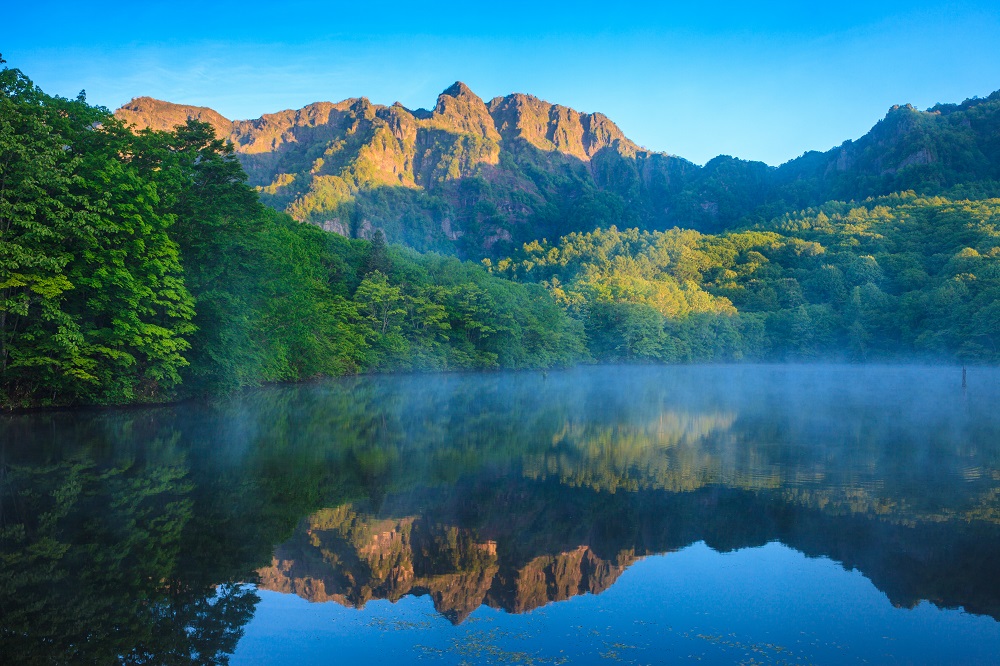
Located 1,200 meters above sea level in the Myoko-Togakushi Renzan National Park, Togakushi Campground is a vast camping site with magnificent mountain scenery, wild birds, and alpine flora. The campground offers a full range of facilities to suit each preferences, from basic tent sites, sites with electric hook-up and running water, cottages for families, log cabins, and bungalows for mountain climbers. Right beside the campground is the Togakushi Farm where to enjoy gazing at cows and horses, cuddling small animals at the petting zoo, and horseback riding.

Togakushi Shrine has a long history and is also mentioned in the ritual of the opening of the "Gate of Heavenly Rock". Since then, the shrine has been visited by numerous ascetic practitioners as the place of mountain worship and it is still remaining popular as a power spot enshrining the deities. While approaching the rear shrine, where about 300 cedar trees of over four centuries of age tower above in a closely packed line for about 500 meters, take in this majestic site. Be overwhelmed by the powerful and perfectly straight giant trees and experience a mystical atmosphere while basking in negative ions.
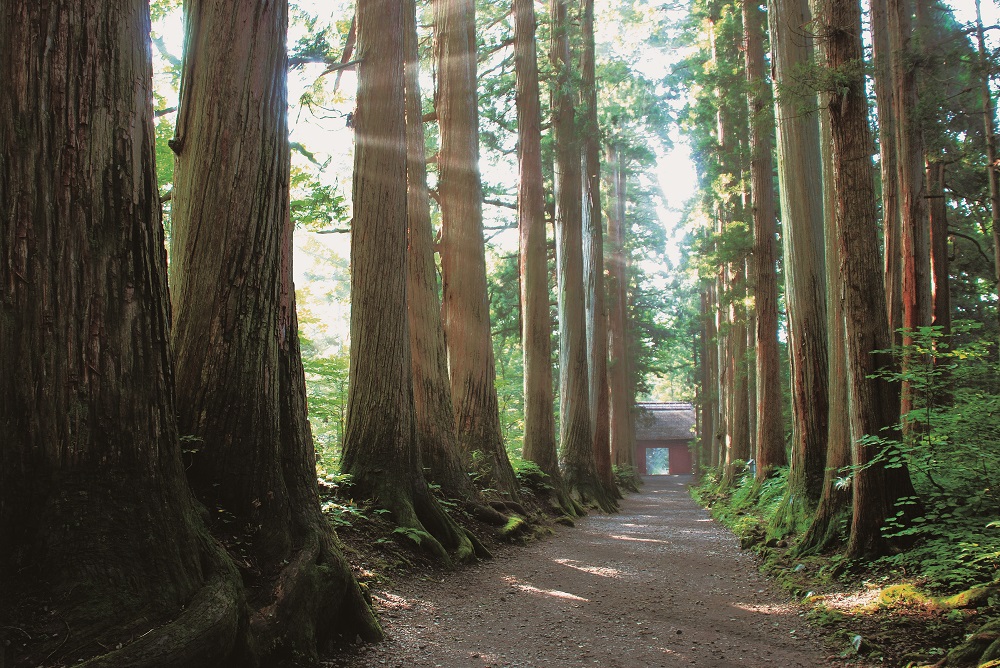
The "Kagami-ike" [mirrored pond], as the name, is a beautiful pond reflecting the Togakushi Mountain Range on the surface like a mirror. An excellent spot for taking pictures, especially on a calm day without wind, reflecting the surrounding scenery so clearly to be felt as if looking at a photograph. The pond is surrounded by a walking trail of about 30 minutes of walk and will be an ideal way to savor the great outdoors. For a quieter forest-bathing experience, Kotoriga-ike Pond and Midoriga-ike Pond may be the places to visit. Perhaps because those ponds are not as well-known as the Kagami-ike, there are not as many tourists, so, just enjoy the tranquility. Togakushi Forest Botanical Garden is another well-maintained walking trail ideal for observing plants and wild birds.
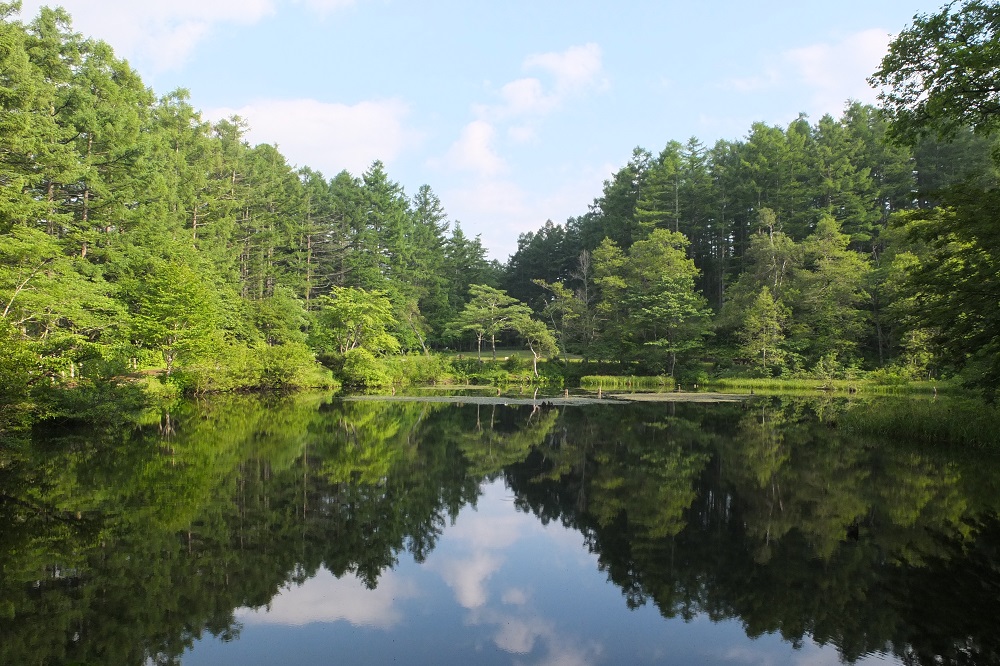
Getting there and around
by Bus
From JR Nagano Station: Take the bus from the boarding spot number 7 at the Nagano Station Zenkoji Exit Bus Stop → (About an hour) → Togakushi Bus Stop
Recommendations
Togakushi Ski Field / 戸隠スキー場
Experience the “magic” of the powder snow and enjoy the stillness of Togakushi nature with total of 19 slopes for both beginners and advanced skiers with diverse topography. Enjoy a 360-degree panoramic view of the Togakushi Mountain Range from the summit, which is over 1,700 meters above sea level, Northern Japan Alps [Hida Mountains] in the distance and Mt. Fuji on a clear day. Easy to access from Nagano Station by bus and close to historic Jinja [Shrines], handmade bamboo craft shops and famous Togakushi Soba Restaurants.

Yudanaka Onsen / 湯田中温泉
Yudanaka Onsen [Hot Springs] has a history dating back more than 1,350 years. Located at the base of Joshinetsu Kogen National Park, the "Jigokudani Monkey Park" [Jigokudani Yaen-Koen / "Wild Snow Monkey Park" 850 meters above sea level, blanketed in snow from late November to early April, is home to a very special troop of monkeys. The park was established in 1964 as a conservation area in which the Japanese macaques (monkeys) would have a refuge within natural habitat, the first and the only monkeys in the world known to bathe in onsen [hot springs] to survive the harsh environment. The adorable monkeys are attracting people all over the world.
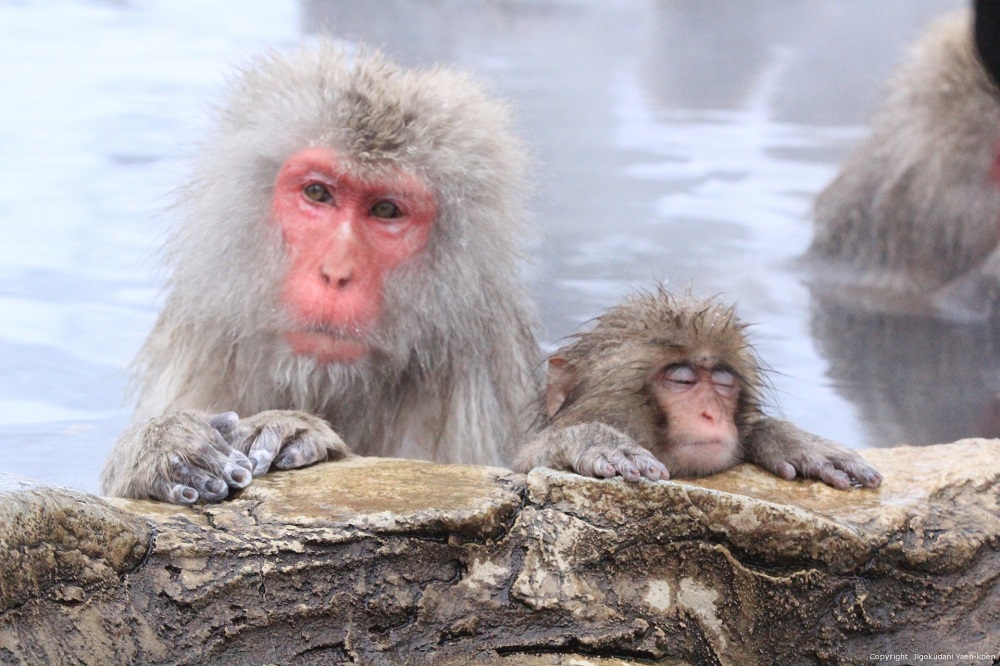
Myoko-Togakushi renzan National Park / 妙高戸隠連山国立公園
Myoko-Togakushi renzan National Park, the 32nd National Park in Japan, is located on the border of Niigata and Nagano Prefectures. The park is famous for "Hitomegozan" [literally meaning "five mountains in a glance" - "go" (five) stands as "numerous" in this case, and when more than two mountains are seen at glance, it is expressed as "Hitomegozan"]. This area is also known for one of the heaviest snowfalls in Japan. The locals have developed the wisdom of living in harmony with the beauty and harshness of nature, as well as worshiping the mountains. Surrounded by breathtaking nature, visitors enjoys activities all year round. Accounted for the great popularity as a field for mountaineering, in addition, the highland at the base of mountains attracts many diverse visitors who are drawn to explore nature in the summer, skiing and natural hot springs in the winter. At Kagami-ike Pond, a popular photo spot, the panoramic view of the Togakushi Mountain Range and the reflection of the mountains on the surface of the pond is mesmerizing. The lingering snow of springtime and the fiery autumn leaves are also scenes not to be missed.
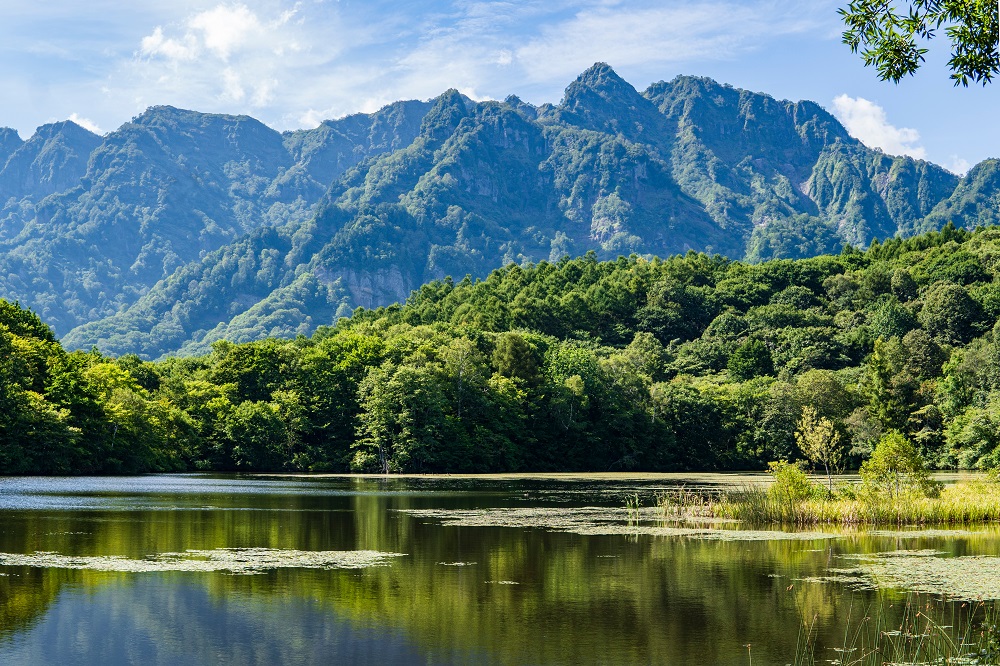
Togakushi Folk Museum / 戸隠民俗館
The building is an architecture of the Edo Era. Originally, a granary that collected and stored rice to be paid to the government, and in the Meiji Era, it was used as a school that was first established in Togakushi. The building has now been relocated and restored at this location. There are about 2000 items on display, mainly related to the traditional culture of Togakushi and the tools that have supported the lives of the locals.
In the Togakushi Ninja Museum, also at the same location, the tools and history of the Togakure-style ninja are displayed. At the "Ninja Karakuri Yashiki" [NINJA HOUSE], enjoy various tricks hidden in NINJA's house. Basically, there's no guide, so it's fun to get out of the house of the tricks all by yourself.
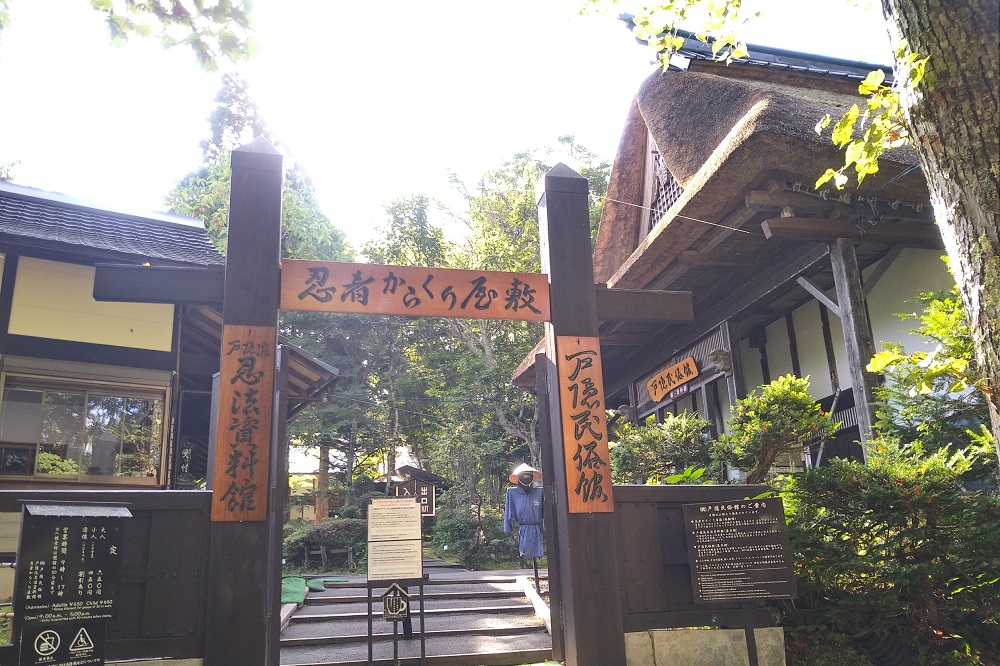
Togakushi Soba / 戸隠そば
The history of soba in Togakushi dates back to the Heian period (794-1185), when it used to be served as the provisions for ascetic monks who trained in the mountains. The soba flour was simply mixed with water, making a dough that could be easily carried throughout a day of training. Togakushi soba noodles are highly regarded as one of the most notably delicious brands among the many produced all over Japan. Cold climate and extreme temperature difference of Togakushi highland are perfect for growing soba rich in flavor. High-altitude fields are often foggy, and soba from around Togakushi, called "kirishita soba" (fog soba), is famous for having the best taste, color and aroma. Soba noodles in Togakushi are usually served on a bamboo tray in five coiled portions, which represent the five shrines of Togakushi. This serving style is known as “bochi mori,” and it is unique to Togakushi. Each soba restaurants has own unique traits, such as the thickness of the noodles or the taste of the dipping soup, so enjoy comparing the different soba dishes for extra fun!

Information
https://togakushi-21.jp/en/en_staff/
Unique Local Experiences
The "Yukigakushi soba", made from fresh soba harvested in the fall and fermented in the snow, is enjoyed annually at exclusive soba restaurants around June.
Travel Recommendations
Located close to the Kagami-ike Pond, the Kotoriga-ike Pond is another surprisingly good photogenic place. Since most tourist steer toward the Kagami-ike Pond, the Kotoriga-ike Pond is a peaceful respite where to take in the amazing scenery leisurely. Fewer people around, truly connect with nature in this pristine spot.
